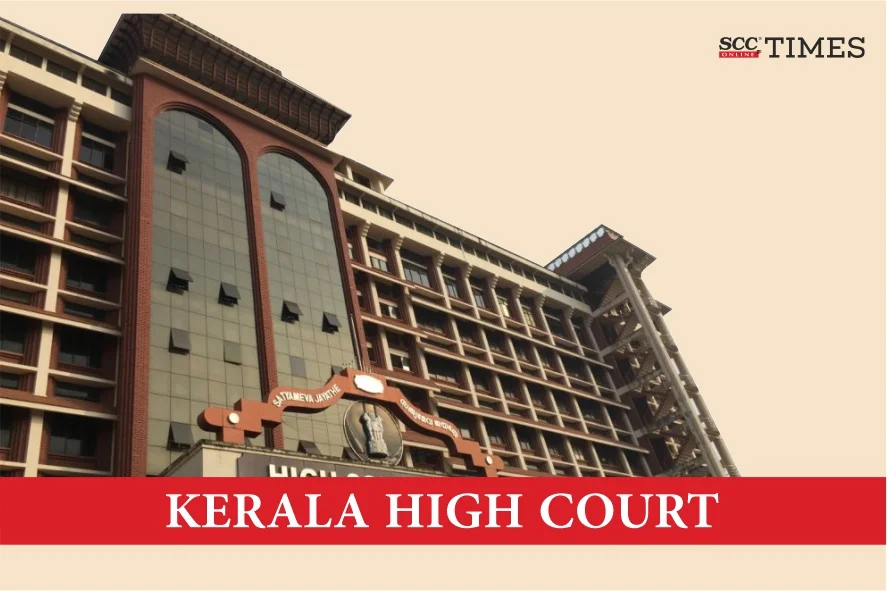Kerala High Court: In an appeal filed by the appellant (‘accused’), challenging her conviction and sentence imposed under Sections 3021 and 309 of Penal Code, 1860 (‘IPC’), the Division Bench of Raja Vijayaraghavan V and P.V. Balakrishnan*, JJ., when the Act came into force on 07-07-2018, the Trial Court, in compliance with Section 115 of the Mental Healthcare Act, 2017 (‘the Act’), ought to have, desisted from proceeding with trial of the case and pronouncing the judgement. Further, in the present case, no material had been adduced to show that the accused was not having severe stress.
Thus, the Court stated that conviction and sentence imposed against the accused could not be sustained and accordingly, set aside the impugned judgment.
Background
The prosecution case was that, due to some mental agony, which arose out of the accused’s marital life, on 1-12-2010 at about 10 pm, she committed murder of her son aged about 3¾ months by smothering him using her hands. Thereafter, she attempted to commit suicide by inflicting cut injuries on her body, by using a steel blade. Hence, the prosecution alleged that the accused had committed the offences punishable under Sections 302 and 309 of IPC.
On filing of the final report, cognizance of the offences was taken by the Sessions Court, and the case was made over to the Trial Court for trial and disposal. The Trial Court after hearing both sides, found the accused guilty and convicted her under Sections 302 and 309 IPC.
In the present appeal, the accused submitted that since the prosecution had not proved the motive for the crime, the conviction could not be sustained. He further submitted that the entire prosecution in this case had to fail in the light of Section 115 of the Act.
The pivotal question, which arose in the present case was that the impact of Section 115 of the Act.
Analysis, Law, and Decision
The Court stated that a plain reading of Section 115 of the Act showed that notwithstanding anything in Section 309 IPC, a person attempting to commit suicide should be presumed to have severe stress and unless it was proved otherwise, the person should not be tried and punished under the said Code. The Court stated that it was very pertinent to note that the legislature had consciously avoided the words such as ‘the said provision’ or ‘the said section’ and instead, had specifically stated ‘the said code’. The terminology “the said Code” used in Section 115(1) undoubtedly referred to IPC. Thus, on a literal interpretation of Section 115(1) of the Act, it could be stated that any person who attempted to commit suicide should be presumed, unless proved otherwise, to have severe stress and could not be tried and punished for any offences under the IPC.
Referring to Section 115(2) of the Act, which provided that it was Government’s duty to provide care, treatment and rehabilitation to a person, having severe stress and who attempted to commit suicide, the Court stated that this mandate of law to give care, protection and rehabilitation to such a person having stress could never be achieved, if he was convicted and sentenced to imprisonment for other offences under IPC. The Court stated that there was no logic to convict and sentence an accused under IPC, when he had attempted to commit suicide during same transaction and had not been proved not having severe stress.
The Court further relied on Common Cause v. Union of India, (2018) 5 SCC 1, wherein it was held that a person who attempted to commit suicide was suffering severe stress (unless contrary proved) and he should not be tried and punished under the IPC. Such person was regarded as victim of circumstances and not an offender. It also held that Section 115 of the Act reflected a law as to how the society must treat such a person by providing care, treatment and rehabilitation rather than penal sanctions.
The Court observed that in the present case, charge was framed on 26-09-2015, and the examination of the witnesses started on 20-11-2017. Thereafter, the impugned judgment was passed on 8-11-2018. Thus, when the Act came into force on 07-07-2018, the Trial Court, in compliance with Section 115 of the Act, ought to have, desisted from proceeding with trial of the case and pronouncing the judgement. Further, in the present case, no material had been adduced to show that the accused was not having severe stress.
Thus, the Court stated that conviction and sentence imposed against the accused could not be sustained and accordingly, set aside the impugned judgment.
[Sharanya v. State of Kerala, 2025 SCC OnLine Ker 1201, decided on 21-02-2025]
*Judgment authored by- Justice P.V. Balakrishnan
Advocates who appeared in this case:
For the Appellant: K.V. Sabu, Advocate;
For the Respondent: Neema TV, Senior Public Prosecutor
Buy Penal Code, 1860 HERE
1. Corresponding Section 103 of Bharatiya Nyaya Sanhita, 2023 (‘BNS’)







